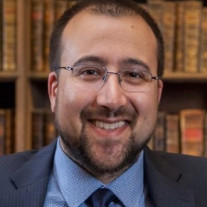Very High Temperature Reactors GIF System Steering Committee
The Very High Temperature Reactor System Steering Committee (VHTR SSC) was established after the VHTR System Arrangement was signed in 2006. Presently, nine members of the Generation IV International Forum (GIF) participate in the VHTR SSC's activities. This committee oversees four projects that cover a broad range of topics related to Very High Temperature Reactors. The VHTR, along with Sodium Fast Reactors, is one of the Generation IV systems that has commercial-scale power reactors in operation today and has also had several in operation previously.
DISCLAIMER: The entry into force of the 2025 GIF Framework Agreement on 1st March 2025 brings changes to the GIF membership. The website will be updated in due course to reflect these changes.
Activities and Membership of the Very High Temperature Reactors GIF System Steering Committee
GIF VHTR SSC gathers ten GIF Members. It oversees four R&D cooperation projects.
VHTR Projects
| Project Arrangement | Project Description | Effective Date | SIGNATORIES
(GIF Member) |
|---|---|---|---|
| Fuel and Fuel Cycle (FFC) | The Fuel and Fuel Cycle project focuses on developing solutions for VHTR fuel, specifically TRISO-coated particles. The project explores potential fuel development such as uranium oxycarbide kernels or ZrC coatings to improve burnup capability, reduce fission product release, and increase resistance to core heat-up accidents. | 2008 | INET (CN) |
| Computational Methods, Validation & Benchmarks (CMVB) | Validation of new computational methods and codes in the areas of HTR thermal-hydraulics, thermal mechanics, core physics and chemical transport are needed for the design and licensing assessment of reactor performance in accident conditions. | 2013 | INET (CN) |
| Hydrogen Production (HP) | Recent Project focus has been on the hybrid copper-chlorine thermo-chemical and the hybrid sulfur cycles. R&D efforts in this PMB address material development, feasibility, optimization, efficiency and economic evaluation for industrial-scale hydrogen production. Performance and optimization of hydrogen production processes are being assessed through integrated test loops, from laboratory | 2008 | NRCan (CA) |
| Material (MAT) | VHTR-MAT PMB mainly focuses on advanced materials development, additional materials’ testing standard and code development, and develops and maintains the “GenIV materials handbook”. The Gen IV Materials Handbook, initially developed for the US Gen IV Nuclear Energy Systems Program, became the shared international database it is today starting from April 2007. The handbook evolved into a sophisticated materials information management system with secured access control, data processing tools, and a flexible framework for enhancement, aiming to satisfy the research needs of international Gen IV nuclear reactor programs. | 2009 | ANSTO (AU) |
If you want to learn more about the Very High Temperature Reactor technology head to the VHTR System description page. If you want to learn more about the latest outcomes and international efforts carried out under the GIF VHTR SSC please refer to the most recent GIF Annual Report.
VHTR SSC Leadership & Technical Secretariat

Mr
Ali SIDDIQUI
Ali Siddiqui leads the Advanced Reactors Directorate at Canadian Nuclear Laboratories (CNL). He leads both the staff and programs undertaking research crucial to speed development and deployment of Advanced and Small Modular Reactors (SMRs) in Canada. Ali leads a diverse team executing on CNL’s clean energy vision including serving federal clients, developing new commercial opportunities, and providing support for the SMR deployment project at CNL. He represents Canada on the International Atopic Energy Agency Gas Cooled Reactor Technical Working Group, the Generation-IV International Forum Experts Group and starting in 2024 October as the Chair of the Very High Temperature Reactor System Steering Committee. He has served numerous technical and leadership roles within CNL, holds a master’s degree in aerospace engineering and is a professional engineer in Ontario.

Mr
Brent WILHELM
Brent Wilhelm is a Nuclear Energy Analyst in the Division of Nuclear Technology and Economics within the Nuclear Energy Agency. Brent also serves the Generation IV International Forum (GIF) as Technical Secretary to the GIF Very High Temperature (VHTR) System Steering Committee, and the Computational Methods, Validation, and Benchmarks (CMVB) and Hydrogen Production (HP) Project Management Boards. Brent also supports the Non-Electric and Cogeneration Applications (NECA) Working Group.
Prior to this role, Brent worked for the Government of Canada as a Nuclear Science and Technology Advisor with Natural Resources Canada, where he informed analysis on nuclear energy technologies in support of Canada’s strategic policies. He has also worked at Canadian Nuclear Laboratories, Bell Canada, and GreenBug Energy, where he gained practical experience in clean energy technology development and the management of infrastructure implementation projects.
Brent received both a MSc and BSc in Physics from the University of Guelph where he specialized in nuclear energy and planetary bulk geochemistry.

Dr
Elena POPLAVSKAIA
Elena Poplavskaia is a Nuclear Scientist in the division of the Nuclear Science and Education and Data Bank at the OECD/NEA. She also provides Technical Secretariat for the Generation IV International Forum (GIF) supporting the VHTR Fuel and Fuel Cycle Project Management Board (PMB), Material PMB and the Advanced Manufacturing and Materials Engineering Working Group. Dr Poplavskaia also supported the SCWR System Steering Committee and the SCWR Project Management Boards on Thermal-hydraulics and Safety, Materials and Chemistry, SCWR provisional Project Management Board on System Integration and Analysis, from 2022 to 2025.
Prior joining the NEA in 2013 she was the head of a Research Centre laboratory, where she led the activities on system analysis of nuclear energy systems including advanced fast reactors and closed fuel cycle technologies, innovative institutional approaches to nuclear energy deployment and long-term aspects of achieving sustainability in the cycle. She was also involved in co-operation with the IAEA INPRO project. She holds a PhD in Engineering Science.